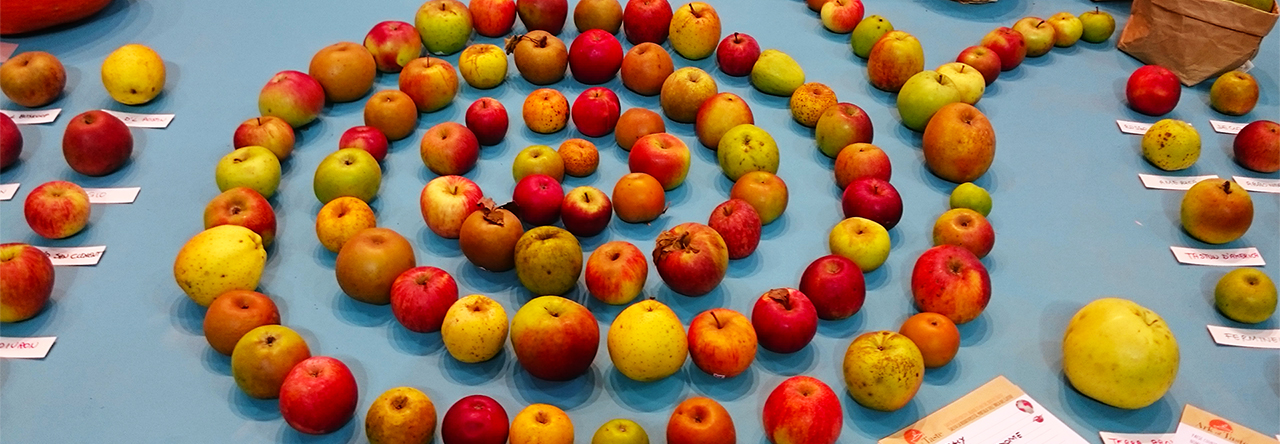This press release has been sent today (7th feb) to the press in Australia, New Zealand, USA, India and Canada within the framework of our international campaign against GMOs, on the request of the Australian International Councillor Amorelle Dempster.
Slow Food Joins Calls for Justice in Steve Marsh Court Case
Steve Marsh suing neighboring GM farmer whose seeds contaminated his organic crops
This coming Monday, February 10, Steve Marsh, an organic farmer from Kojonup, south of Perth, is going to court against neighboring farmer Michael Baxter whose Monsanto GM canola blew into his farm in 2010. Due to this incident Steve Marsh lost his organic certification and most of his income. For the past three years, he has struggled to make ends meet while working to decontaminate his land and get his organic certification back. As Monsanto has a no liability agreement with GM farmers it prevents them from being sued. Steve’s only choice was to take his neighbor to court for compensation of loss and damages.
Slow Food supports Steve Marsh’s case and the Safe Food Foundation that supported him in his fight again unjust treatment. We hope that this injustice against organic farmers who are threatened by GM contamination will not continue to go unseen.
Carlo Petrini, President of Slow Food International, said in this regard: «The case of Steve Marsh offers concrete proof of the fact that GMOs pose a threat not only to our health and the environment, but also to a fundamental right, the right to food sovereignty. It is unacceptable that an Australian organic farmer should lose certification for approximately 70% of his land after it was contaminated by Monsanto GM canola from a nearby farm. GMOs are depriving farmers and consumers of their fundamental right to choose. The former cannot choose what they grow, while the latter often cannot choose what they eat. For this reason, we support Steve Marsh in his battle, and we invite everyone to participate in the global Twitter storm using the hashtag #IamSteveMarsh. Even though this is just the story of one Australian farmer, the way in which it plays out in the courts on February 10 could have global implications».
This case is not an exception: The Steve Marsh case is just one of many cases worldwide in which GM farms negatively influence organic or conventional farms, and the livelihoods of farmers. Significantly, this is a one-sided risk that never happens the other way round. It cannot be legal for an organic farmer to loose his license as a result of an external and involuntary imposition; nor should he have to work and invest in regaining his livelihood. This is why Slow Food* is against the commercial planting of genetically modified (GM) crops. We promote GM free food and animal feed and we are active in a global campaign against all genetically modified organisms. Please find out more about the Slow Food campaign** against GMOs: http://www.slowfood.com/international/22/gmos
You can find more information on Steve Marsh’s case on the website of the Save Food Foundation: http://safefoodfoundation.org/what-we-do/help-this-farmer/
For further information, please contact the Slow Food International Press Office:
Paola Nano, +39 329 8321285 p.nano@slowfood.it
Sharon Aknin, +39 3274737220 s.aknin@slowfood.it
* Slow Food involves millions of people dedicated to and passionate about good, clean and fair food. This includes chefs, youth, activists, farmers, fishers, experts and academics in over 150 countries; a network of around 100,000 Slow Food members linked to 1,500 local chapters worldwide (known as convivia), contributing through their membership fee, as well as the events and campaigns they organize; and 2,000 Terra Madre food communities who practice small-scale and sustainable production of quality food around the world.
** GMOs. Slow Food has been promoting GMO-free food and feed in its projects since its beginnings. Vast monocultures, which are usually in favor of GMO cultivation, are causing biodiversity impoverishment and forcing small-scale farmers, who are operating in marginal areas, to move from their lands; leading to the loss of traditional knowledge and varieties. The food sovereignty of communities is being further jeopardized by the fact the seed market is largely controlled by multinational companies that patent and produce GMO seeds, as well as by the high risk of contamination between GMO and organic and conventional crops. In countries where GMOs are permitted, labeling laws are adopted exclusively for products of human consumption and not for “GMO derived products” (meat, milk, eggs, etc.), obtained from GMO animal feed. These insufficient labeling laws hinder the freedom of choice of consumers. Members of Slow Food around the world are committed to raising awareness, educating and explaining why it rejects GMOs through events and actions organized at the local and international level.

